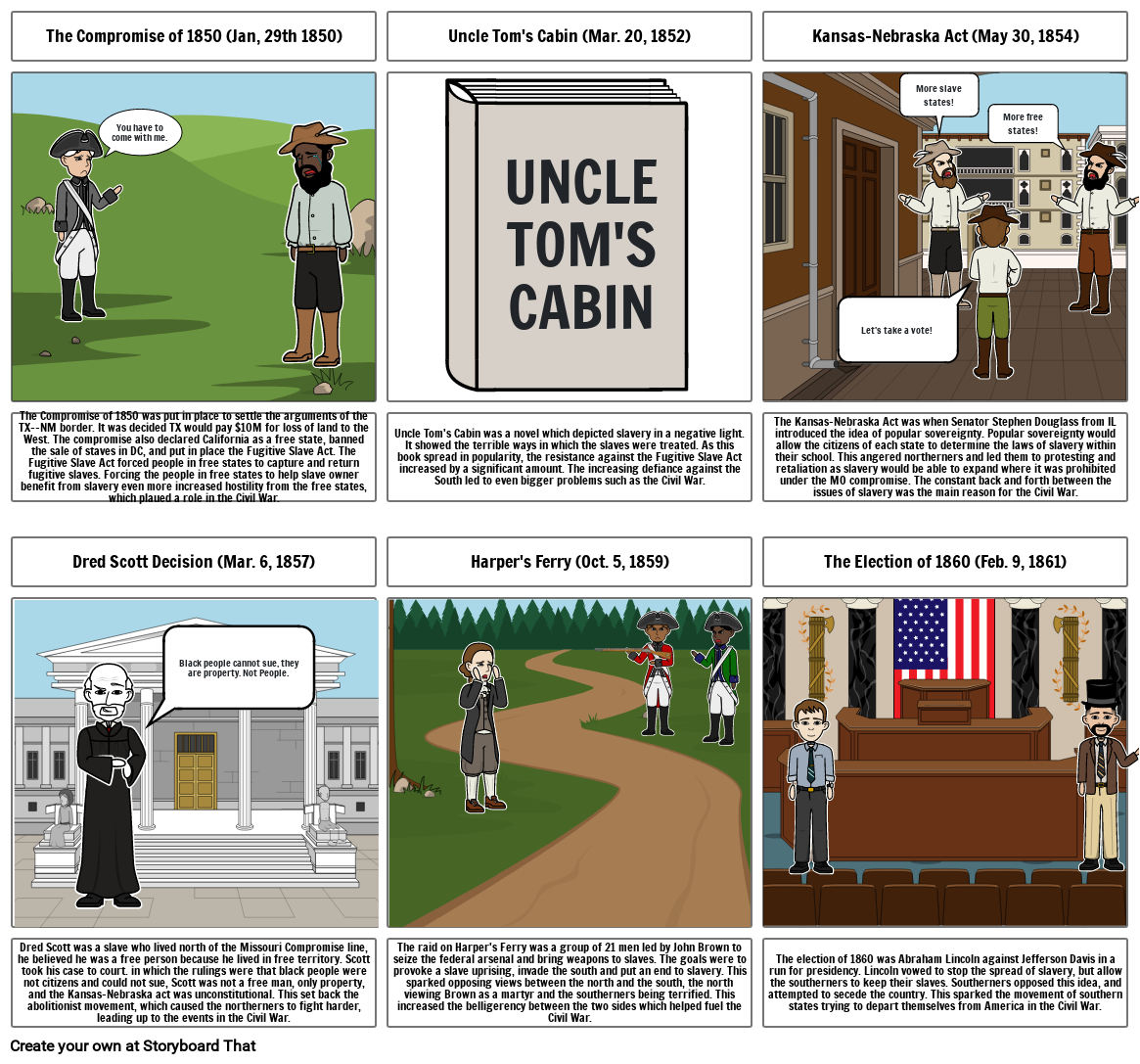HUSH War to Civil War

Storyboard Text
- The Compromise of 1850 (Jan, 29th 1850)
- You have to come with me.
- Uncle Tom's Cabin (Mar. 20, 1852)
- UNCLE TOM'S CABIN
- Kansas-Nebraska Act (May 30, 1854)
- Let's take a vote!
- More slave states!
- More free states!
- The Compromise of 1850 was put in place to settle the arguments of the TX--NM border. It was decided TX would pay $10M for loss of land to the West. The compromise also declared California as a free state, banned the sale of staves in DC, and put in place the Fugitive Slave Act. The Fugitive Slave Act forced people in free states to capture and return fugitive slaves. Forcing the people in free states to help slave owner benefit from slavery even more increased hostility from the free states, which plaued a role in the Civil War.
- Dred Scott Decision (Mar. 6, 1857)
- Black people cannot sue, they are property. Not People.
- Uncle Tom's Cabin was a novel which depicted slavery in a negative light. It showed the terrible ways in which the slaves were treated. As this book spread in popularity, the resistance against the Fugitive Slave Act increased by a significant amount. The increasing defiance against the South led to even bigger problems such as the Civil War.
- Harper's Ferry (Oct. 5, 1859)
- The Kansas-Nebraska Act was when Senator Stephen Douglass from IL introduced the idea of popular sovereignty. Popular sovereignty would allow the citizens of each state to determine the laws of slavery within their school. This angered northerners and led them to protesting and retaliation as slavery would be able to expand where it was prohibited under the MO compromise. The constant back and forth between the issues of slavery was the main reason for the Civil War.
- The Election of 1860 (Feb. 9, 1861)
- Dred Scott was a slave who lived north of the Missouri Compromise line, he believed he was a free person because he lived in free territory. Scott took his case to court. in which the rulings were that black people were not citizens and could not sue, Scott was not a free man, only property, and the Kansas-Nebraska act was unconstitutional. This set back the abolitionist movement, which caused the northerners to fight harder, leading up to the events in the Civil War.
- The raid on Harper's Ferry was a group of 21 men led by John Brown to seize the federal arsenal and bring weapons to slaves. The goals were to provoke a slave uprising, invade the south and put an end to slavery. This sparked opposing views between the north and the south, the north viewing Brown as a martyr and the southerners being terrified. This increased the belligerency between the two sides which helped fuel the Civil War.
- The election of 1860 was Abraham Lincoln against Jefferson Davis in a run for presidency. Lincoln vowed to stop the spread of slavery, but allow the southerners to keep their slaves. Southerners opposed this idea, and attempted to secede the country. This sparked the movement of southern states trying to depart themselves from America in the Civil War.
Over 30 Million Storyboards Created
No Downloads, No Credit Card, and No Login Needed to Try!
